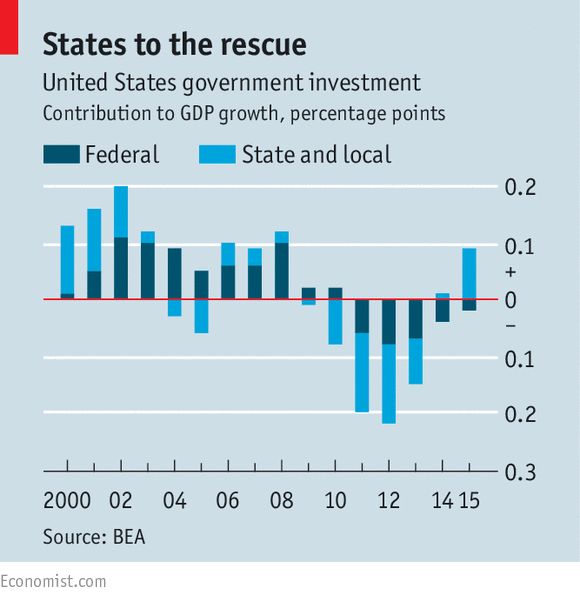When President Obama won re-election in 2012, Democrats increased their majority in the Senate, but the House of Representatives remained in Republican hands. In House races in 2012, 1.7 million more votes were cast for Democrats than for Republicans, but Republicans came away with 33 more Congressional seats.
How did this happen when in 2008, Republicans lost a “wave” election, and were looking at eight years in the minority? The Republicans were staring down a demographic tidal wave, and the Democrats were talking about a decade of changing politics. The Democrats had taken a super majority in the Senate. The real risk to the GOP was that, by the 2020 census, demographics could keep them in a semi-permanent minority for a very long time.
Then, along came a Republican strategist named Chris Jankowski. He had a strategy, one which the Democrats failed to react to. A strategy that turned a period of a likely permanent GOP minority to a GOP majority in four years. All of this is covered in “Rat-F*****: The True Story Behind The Secret Plan To Steal America’s Democracy“, by Salon’s editor-in-chief, David Daley.
Jankowski’s strategy was to gain control of as many state legislatures as possible in 2010. The plan was to control the state’s redistricting process for Congressional districts, once the result of the 2010 Census was available. That is because state legislatures draw most of the congressional boundaries across the country. The GOP’s plan was called REDMAP for Redistricting Majority Project. The idea behind REDMAP was to hit the Democrats in several state legislatures where Democratic statehouse majorities were thin. They targeted races with vast sums of money and were able to flip many state houses.
In 2009, Democrats held the majority of seats in both houses of the state legislature in 27 states. In six more, they held a majority in one house. The Presidency, the US Senate, and the House of Representatives were all in Democratic hands.
In 2010, Republicans gained nearly 700 state legislative seats, which, was a larger increase than either party has seen in modern history. The wins were sufficient to push 20 legislative chambers from a Democratic to a Republican majority.
Most significantly, the GOP took control over both houses of the legislature in 25 states.
REDMAP’s success was made possible by funding from a super-PAC called the Republican State Leadership Committee. It raised $30 million, mostly from corporations, of which $18 million was received just weeks before Election Day.
Pennsylvania is an object lesson: So skillfully were the lines drawn by the Republican legislature that in 2012, when President Obama carried Pennsylvania by 300,000 votes and the state’s Democratic congressional candidates collectively out-polled their rivals by 100,000 votes, Republicans still won 13 of Pennsylvania’s 18 seats in the House of Representatives.
In Michigan, the 2012 election was a huge success for Democrats. Voters elected a Democratic US Senator by more than 20 points and reelected President Obama by almost 10 points, but Republicans ended up with nine of the state’s Congressional seats to the Democrats’ five.
This was among the greatest political achievement in modern times. If you’re a Republican, you look at this and say, we played by the rules, we played within the law, and we won!
And the Democrats spent 2009-2011 asleep at the wheel, presiding over a catastrophic strategic failure.
Worse, the GOP plans were announced by Karl Rove in a March 2010 op-ed in the Wall Street Journal. Rove said they were going to use redistricting to take back the Congress. The GOP plan was in plain sight.
This takes us to Hillary Clinton’s possible choices for Vice President. Apparently, she is leaning towards Tim Kaine, (D-VA). Kaine is attractive in that Hillary needs to win in Virginia to win the presidency. Kaine is a Harvard-educated lawyer and was governor of Virginia from 2006-2010.
We mention him here since he was Chair of the Democratic National Committee from 2009-2011.
That’s right, it was Tim Kaine who the Republicans outsmarted with their REDMAP strategy. It is Tim Kaine who let the GOP place so many different locks on the door to Congress. Undoing that will take years of really concentrated effort, state by state, chamber by chamber. It’s going to take the Democratic Party at least until after the 2020 census to undo what Tim Kaine let happen in 2010 and 2011.
Perfect choice for VP. He’s the right guy to follow a Hillary Presidency.
In preparation for the next census, Democrats have come up with a REDMAP-like plan of their own. They call it Advantage 2020, and say they plan to spend $75 million.
Republicans have announced REDMAP 2020. Their spending goal?
$125 million.








